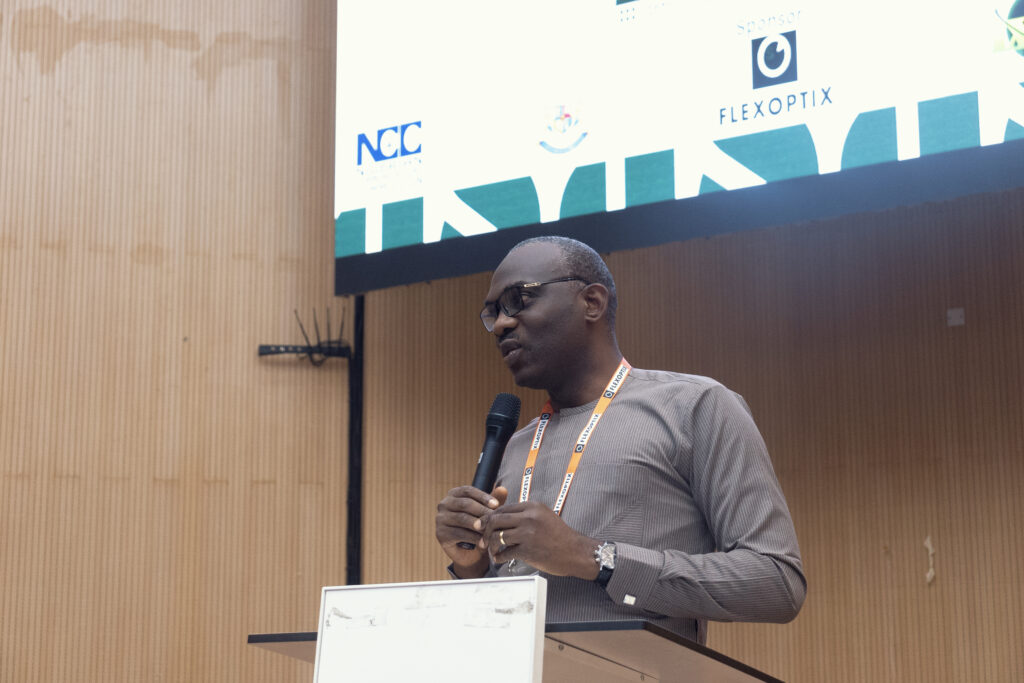
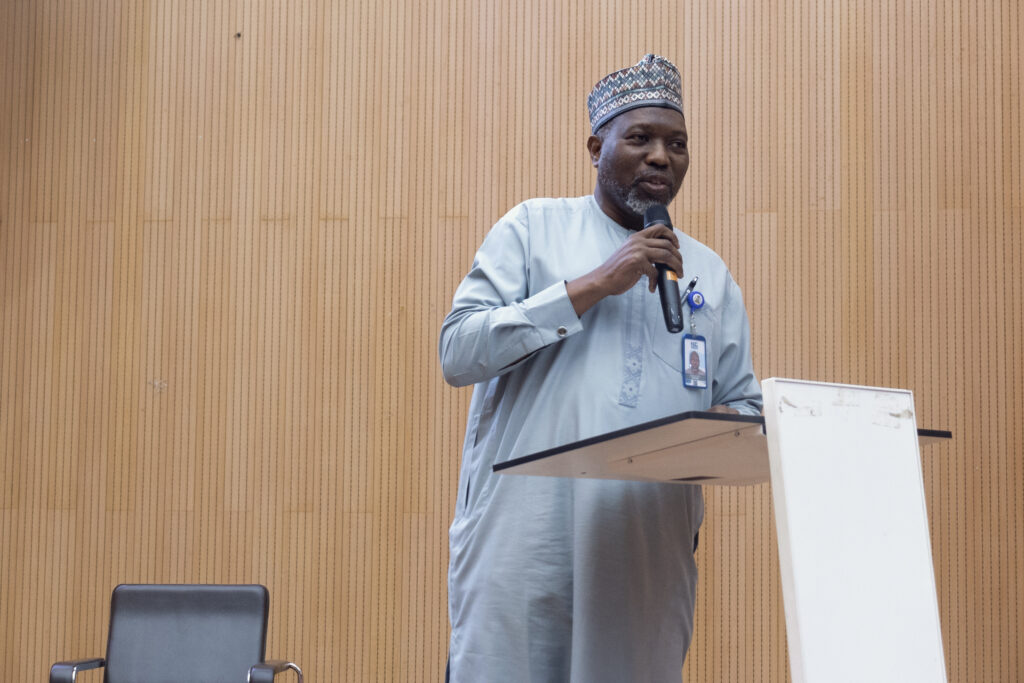
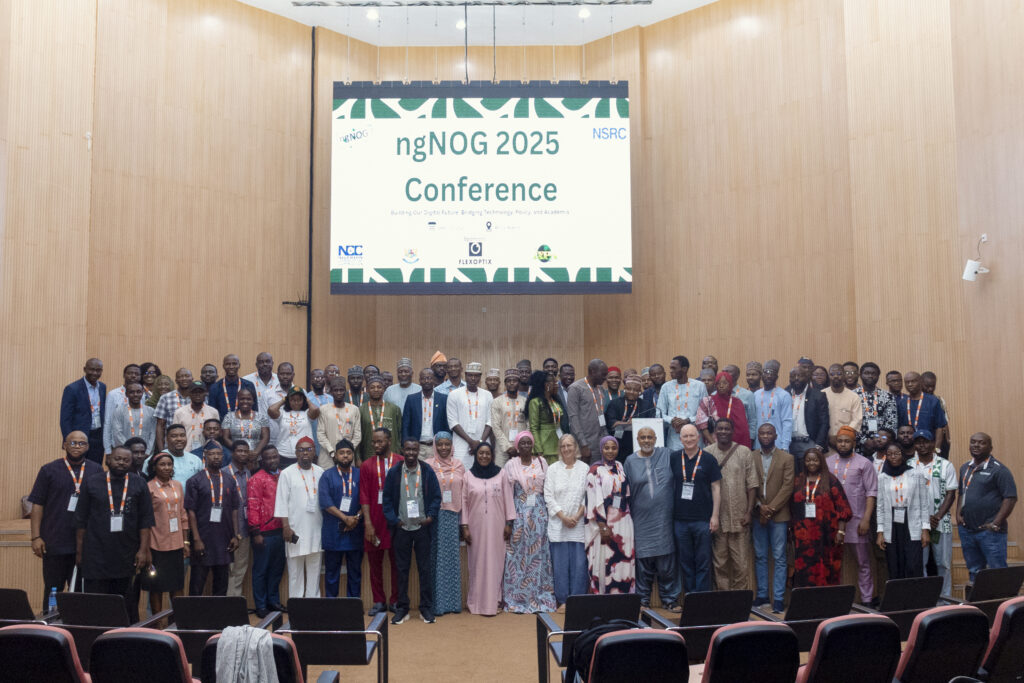
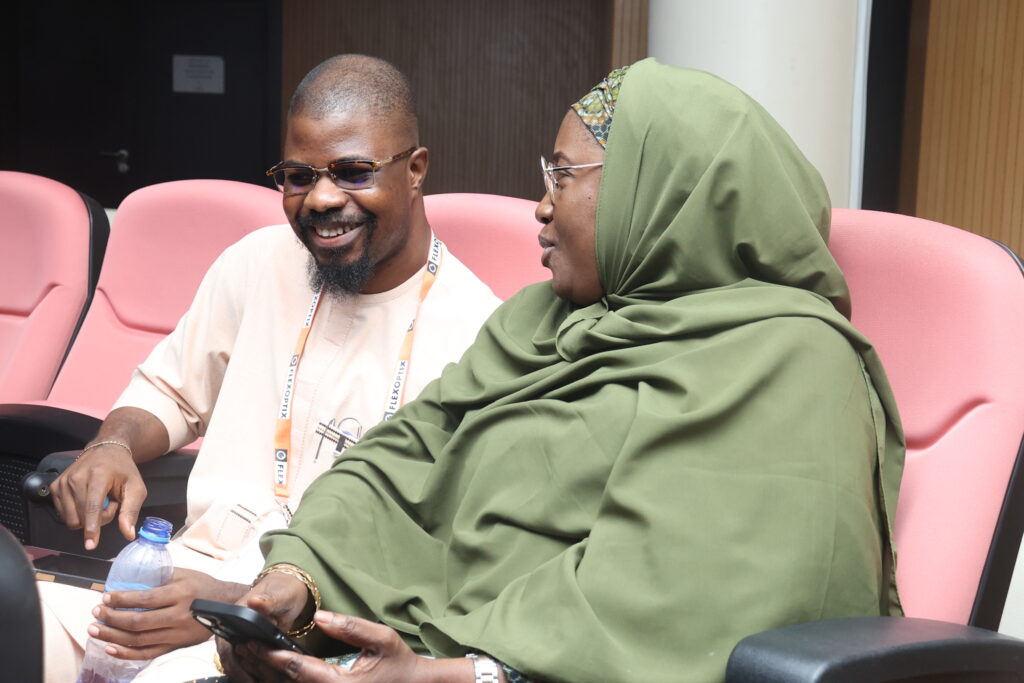
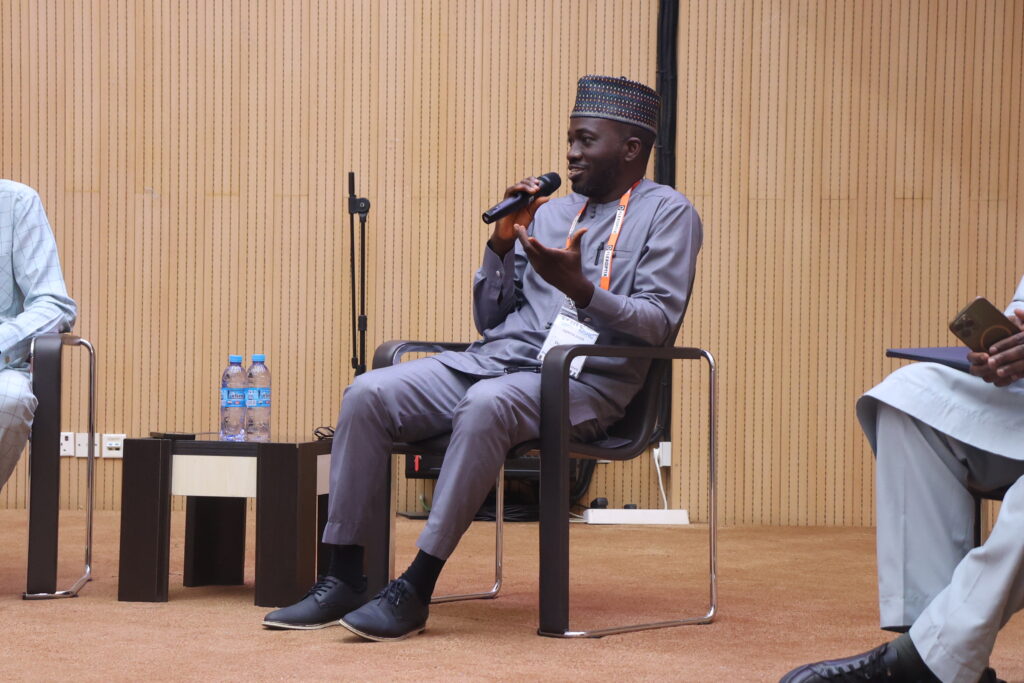
The Nigerian Network Operators Group (ngNOG) successfully hosted its 2025 main conference on Thursday, October 16th, at the NCC Annex Auditorium in Abuja, Nigeria. Under the theme “Building Our Digital Future: Bridging Technology, Policy, and Academia,” the event served as a critical platform for industry leaders, technical experts, regulators, and academics to discuss strategies for advancing Nigeria’s digital landscape.
The day commenced with welcoming remarks from key figures. Prof. Adewale Adedokun, National Coordinator of the NCC, officially opened the event. He addressed the importance of the technical foundation laid during the three-day pre-conference workshops and extended deep gratitude to the sponsors, NSRC, and the NCC for their continued support.
Following him, Engr. Babagana Digima, Head of Cybersecurity and Internet Governance, emphasized the critical nature of the gathering, stressing that collaboration between these sectors is essential to secure and stabilize the nation’s connectivity future.
The core of the conference featured expert presentations covering network analysis, routing security, and operational best practices:
The highlight of the day was the highly anticipated panel discussion on “Forging Synergy Between Industry, Policy, and Academia for National Network Resilience.”
The panel featured Engr. Babagana Digima (NCC), Adewale Oronti (Researcher, FUTA), and Adewole Ajao (Network Infrastructure Expert). The discussion centered on critical areas required for effective synergy, starting with closing the skill mismatch by examining how university curricula can be rapidly updated to prepare graduates for modern roles in Cloud Networking, Automation, and Security operations. This extended to exploring necessary frameworks for data and research, allowing secure and responsible data sharing between network operators and academic researchers to foster localized innovation. The panelists also focused on establishing effective feedback loops, institutionalizing mechanisms like IXPs or NOGs to ensure regulatory policy is informed by current technical realities and identifying successful models for joint capacity building through certification programs and mentorship schemes.
The final speaker, Adewole Ajao, delivered a critical security warning with his talk, “The Peering Black Hole: How RPKI Hijacks Your Traffic.” He illustrated how simple misconfigurations in Resource Public Key Infrastructure (RPKI) Route Origin Authorizations (ROAs) can cause legitimate route announcements to be marked as “Invalid.” This results in major peering partners dropping the route, creating a black hole and forcing traffic onto less desirable, indirect paths.
The conference concluded with Prof. Adewale Adedokun offering closing remarks, thanking everyone for their passionate participation. He encouraged attendees to apply the knowledge and tools gained to advance the ecosystem, giving a special shout-out to the instructors who volunteered their time to lead the intensive technical workshops throughout the week.


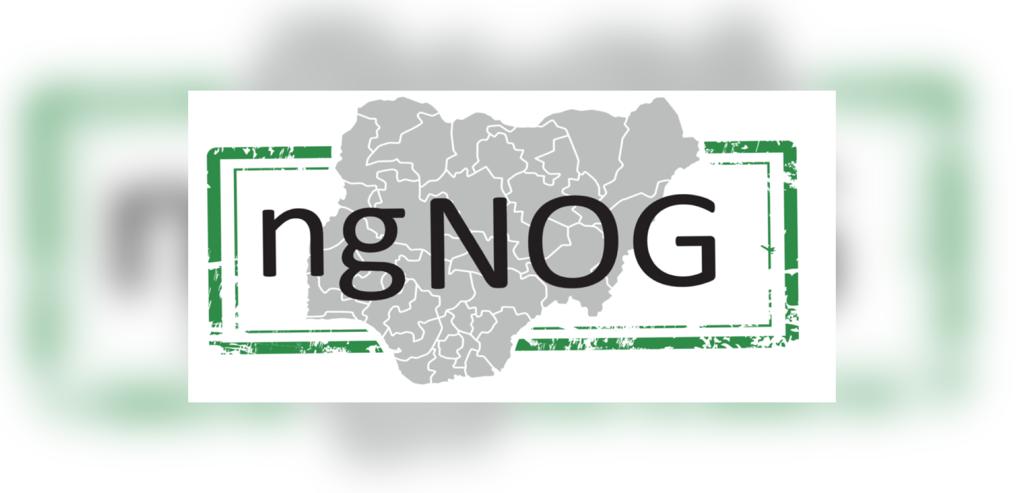
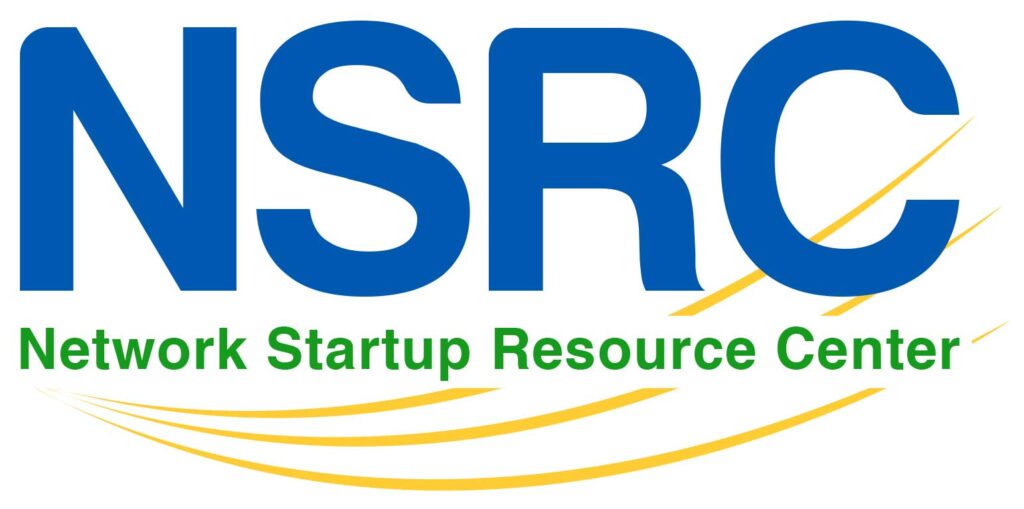


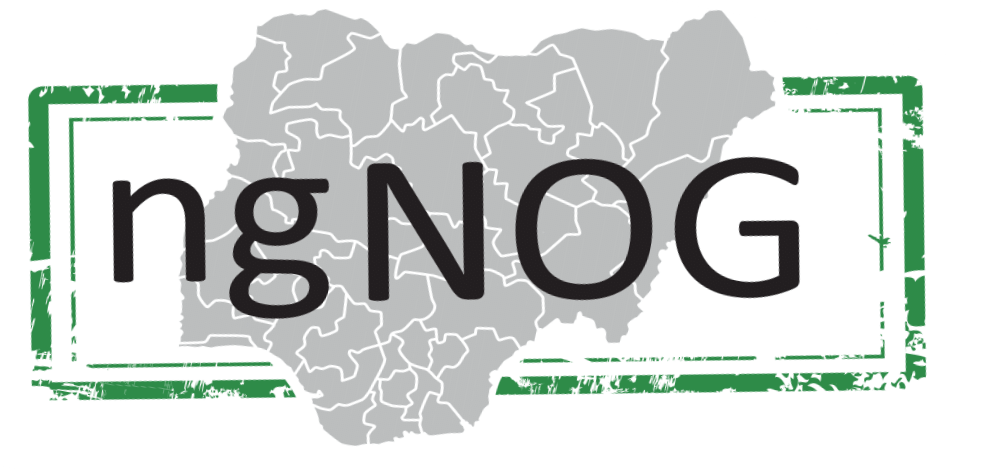
ngNOG brings together individuals and organizations dedicated to advancing the country’s network infrastructure to enhance the connectivity and digital landscape of Nigeria.
Copyright © 2025 Nigerian Network Operators Group. All Rights Reserved.